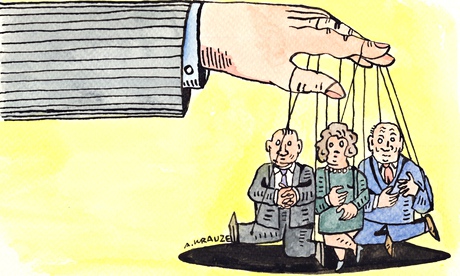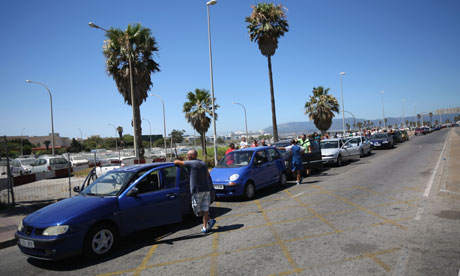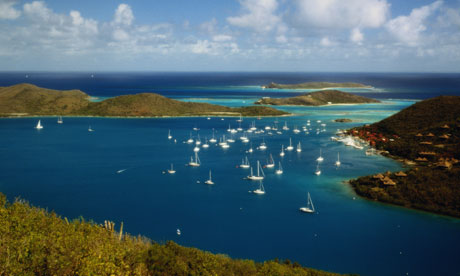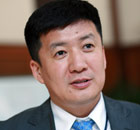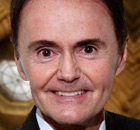Written by Khaled Ahmed in The Indian Express| Posted: October 4, 2014 12:00 am
On September 18, the Indo-British Heritage Trust held a discussion in London about “whether the Indian subcontinent benefited more than it lost from the experience of British colonisation”. Speakers who said the subcontinent lost were heavyweights like William Dalrymple and Shashi Tharoor, both of whom I have enjoyed listening to and whose books have given me great pleasure. From Pakistan, the speaker chosen on the other side was my colleague at Newsweek Pakistan, Nilofar Bakhtiar who, before leaving for London, agreed with me that we were better off under the British.
Is that surprising, after half a century of failing to fulfil the promises made twice to the people of India? Once when Muslims and Hindus were united in their struggle for freedom; and second when they fell apart, and Muslims promised to set up a utopian state where they would be “free to practise their religion”.
Under British Raj, we were not free, but we were also not slaves. The British were less brutal than the Belgians to their colonies in Africa. We claimed rightly that we had the right to be free, to decide our own destiny, to have the law we wanted and a government we were able to choose. Morally, we had the right to tell the Raj to go, to resist it and struggle against it. We’d had enough of serving the gora sahib and fighting his imperial wars.
We had a different vision of what kind of state we wanted. We wanted equality instead of inequality practised by exploiters, peace instead of the conflict of a developing bipolar world. After fighting the wars of the Raj, we thought of becoming neutral and nonaligned. We could achieve our visions only after becoming independent.
We have inequality today and we have fought many “just” wars to perpetuate it. And the index of unhappiness keeps on climbing.
By ousting the British we also wanted to purge ourselves of what we diagnosed as a “slave mentality”. We had had enough of local brown sahibs who spoke English and perpetuated the Raj of the mind. After Independence, we would revive our languages and learn to think “free” in them. But today, we are slaves to our narratives of exclusion.
Unfortunately, we didn’t have much to fall back on. The British had wrested India
from a dying ruling elite that didn’t even control it territorially. We had no political system we could emulate, except tyranny of one sort or another. Jawaharlal Nehru honestly thought the past was all rotten.
Keen to be born as a nation-state, we disagreed we were one nation. Under the British, India was united as one state. We should have become a nation, but we didn’t. One side suspected the Raj was dividing what was one nation; the other side thought we were not one nation in the first place.
Democracy, introduced by the British through limited franchise and devolved elections, was new to us and felt good. They forced us to respect democratic principles. We had a struggle ahead with the kind of society we were. To be truly democratic we had to remove the caste system, which the Raj couldn’t extirpate. We agreed to disapprove of it. But in 2014, certain communities in our region still feel left out.
The British enabled us to put the past behind us. But after 1947, becoming free, we revived the past we should have buried and got nothing out of it. Muslims thought faith had made them a nation but soon discovered that language divided more than religion united. Muslims rejected the biggest gift of the Raj: secular governance. The British taught us modern commerce, growing out of stock exchanges we had known nothing about. Bombay converted the mostly Gujarati merchant community into India’s wisest class — Hindu, Parsi, Ismaili, etc — who deserved to rule India and thought, rightly, that it was not yet time for independence. Nobody listened.
The Muslims of India got a raw deal. Religion didn’t bind in 1947; and Bangladesh was created in 1971. Further, rejecting the lessons of the Raj, they set up an Islamic state in Pakistan that immediately led to the reduction of the non-Muslims to second-class citizens. Pakistan as a revisionist state fought wars with India. The Muslims of India too became discriminated against. Today, India is ashamed of its Muslim-killing communal riots. South Asia has suffered ethnic cleansing to shame the Balkans.
If we are bad today, it doesn’t mean the British Raj was bad. The bad in us is a kind of return to being us. If India has communal riots, Pakistan is brutal to Hindus in Sindh, joined with Muslim Sindhis through language. Their daughters are kidnapped and forcibly married to Muslim boys after forced conversion, driving Hindu families into exile in India. In “secular” Bangladesh, Hindus should have fared better, but there too, their “bleeding” back into India is unending.
Under the British Raj, Muslims’ sectarianism was effectively suppressed. The Shia and the Sunni began to feel like one community under secular administration and it was no surprise that Pakistan was created by a Shia leader. Today, he would have been bumped off by a “target-killer” of Karachi. The late Papiya Ghosh — yes, there are such great “colonised” people in the subcontinent — in her classic Partition and the South Asian Diaspora: Extending the Subcontinent (2007) tells us how self-determination went wrong in India.
Biharis were the first workers in a peasant India, after iron ore was discovered in Bihar and the steel industry came up there together with the railways. After 1947, Bihari Muslims were most unfairly driven out of India into East Pakistan, but there the self-determining principle was language, not religion. So they were killed and pushed out again. We are still “self-determining” after 67 years, and most of it is just killing. Did the British teach us to kill to achieve self-determination? What Dalrymple does to the Brits through his books is tonic for them.
There were things done in India that should make them squeal with guilt. But “freedom” shouldn’t make us forget how we have fallen short after 1947. What happened to the good things we learned from the European Enlightenment the British carried with them?
I unabashedly admire Raja Rammohan Roy and Sir Syed Ahmad Khan because they borrowed from the Enlightenment and tried to pull us out of the abyss that still attracts us. In Pakistan, “Khan” is not the password to acceptance you thought he would be. Borrowing values made them “unoriginal” for us.
Tagore actually told the Brits what was really wrong with them. He didn’t want the disease of nationalism creeping into “free” India. But we had strong “single” identity ingredients that “excluded” the manifold “other”. Toxic textbooks distort history today to make us feel proud of unworthy things that would’ve made Tagore wince.
I don’t know about India but in Pakistan, all the infrastructure that serves us today is a Raj bequest — the roads, bridges, railroad and the world’s largest canal system — without which the state of Pakistan couldn’t have survived. After 67 years, all that is now quite rundown. Unkindly, the world calls us a “failing” state. Did the Raj cause us to fail?

